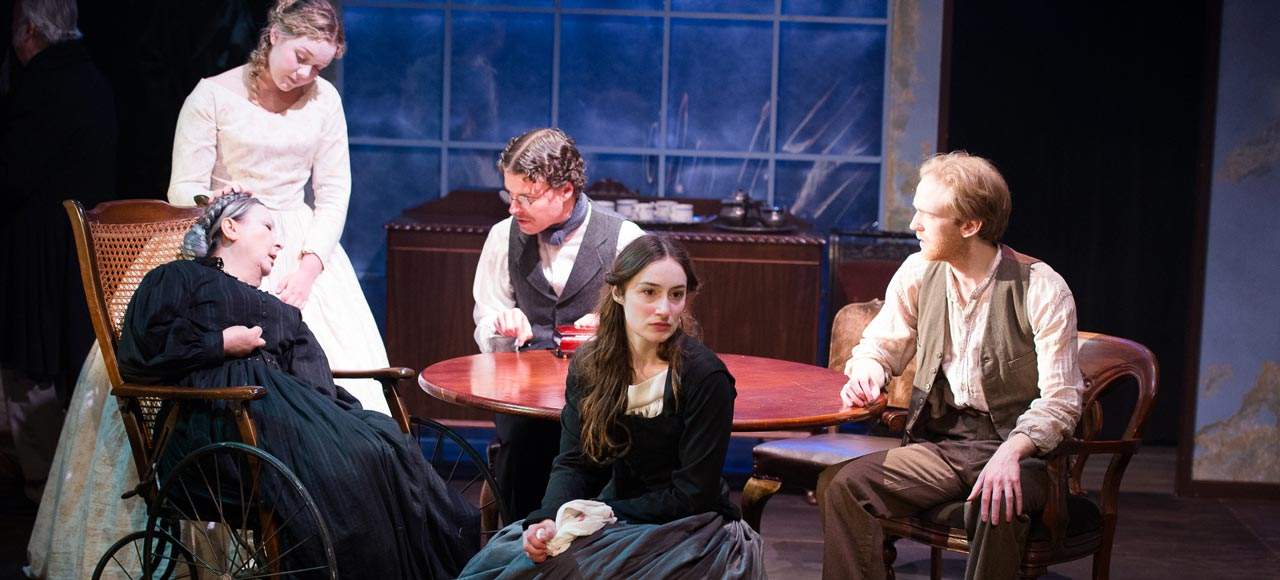Therese Raquin – Theatre Works and Dirty Pretty Theatre
The work of Emile Zola gets a dramatic new treatment at Theatre Works, taking it far from stale classicism.
Overview
Where productions of classic stories on Melbourne’s main stages all too often take a stale, museum approach, in Gary Abrahams’ adaptation of Emile Zola’s Thérèse Raquin every one of the production’s elements come together for a deeply satisfying piece of theatre.
The story is fairly straightforward. Thérèse is trapped in a loveless marriage with sickly mother’s boy Camille. When her husband brings home their childhood friend Laurent they begin a clandestine relationship that wreaks havoc on those around them, and themselves. But Abraham’s direction and approach to the adaptation elevates this story above straightforward melodrama. The ensemble’s combination of boldly defined characterisation and largely natural accents transform the 19th century text into a form that’s thoroughly accessible and always engaging without sacrificing Zola’s rich language and images.
Elizabeth Nabben fully embodies Thérèse’s devastating frustrated desire, and the care taken to drawing out her relationship with the unworldly and often thoughtlessly cruel Camille (Paul Blenheim) – "She’s not very bright; don’t pay her much attention" – and with the morose, drab world of the claustrophobic home itself makes Raquin’s descent all the more real, and terrifying. Aaron Walton’s Laurent is the perfect foil to Nabben — at once both her faithful co-conspirator and betrayer — but the entire ensemble are in excellent form, especially Marta Kaczmarek as Camille’s mother.
The length of the play and its use of frequent, malevolent humour allows many offhand allusions foreshadowing its action to accumulate, filling the work with dread momentum — for instance, Laurent being crowned "King of the Bones" after a game of dominos. Christopher De Groot’s composition adds to this tension, alternating between sparkling, Satie-like piano and tuneless atmospherics, and having him playing onstage allows De Groot to weave sound seamlessly in response to the actors. Occasionally the transitions between scenes threaten to deflate tension and pace, but the director’s commitment to this dynamic allows the ambiguity of fleeting after-images to be left hanging over the next scene.
Thérèse Raquin is only running until August 30, but it’s a production that deserves a long life beyond this wholly satisfying world premiere.
Photo credit: Lachlan Woods.





